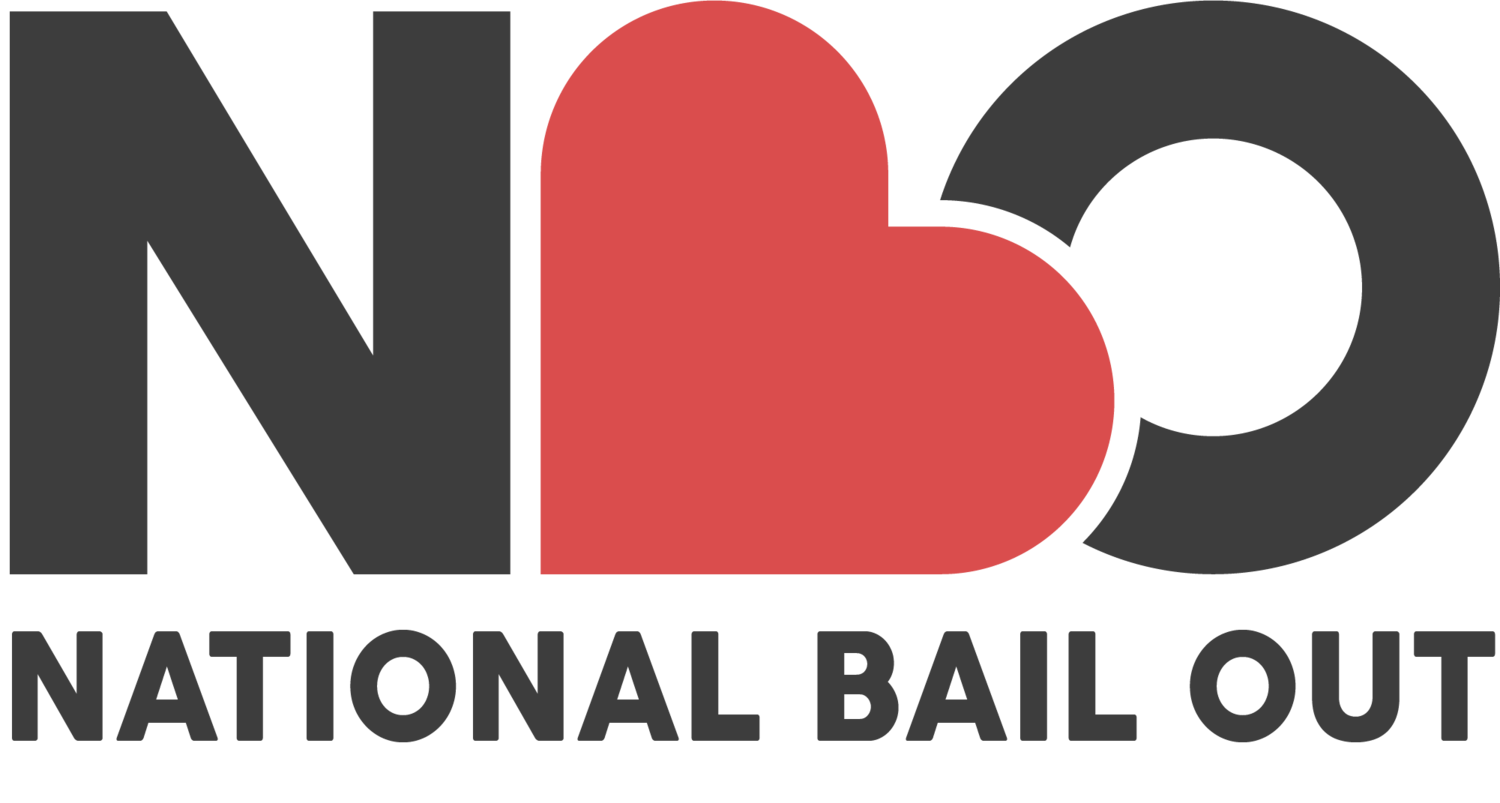Our History
Black Mama’s Bail Out began with an invitation from Mary Hooks, former co-director of Southerners on New Ground (SONG), a membership-based organization of Southern LGBTQ Black people, people of color, migrants, and working-class people who work for dignity and justice across race, class, abilities, age, gender, and sexuality in the South. The invitation came in 2017 at a strategy meeting focused on how Black communities could intervene in the ongoing bail fight, facilitated by the Movement for Black Lives Policy Table, Law for Black Lives, and Color of Change. Mary invited a small group of organizers to join a tactical mass bail out—putting together funds to bail several people out of jail. This action became Black Mama’s Bail Out, where we bailed out Black mamas and caregivers. At that time, the founding members of the National Bail Out collective began planning the first Black Mama’s Bail Out.
Despite the reality that Black women and femmes bear the brunt of incarceration, both as the fastest-growing population of people incarcerated in jails and prisons over the past 50 years and as caregivers and space holders for our families and communities, there has been little discussion of the specific ways Black women and femmes experience the impacts of incarceration. Women and femmes absorb the immediate financial costs of the incarceration of a loved one, such as attorney’s fees, court fees, and bail. At the same time, they lose the financial support of their incarcerated loved one. Essie Justice Group’s 2018 report, Because She’s Powerful, found that nearly 70 percent of women with incarcerated loved ones are their family’s head of household and sole income earner. Additionally, the number of women incarcerated went from 8,000 people in 1970 to nearly 110,000 in 2014—and nearly two-thirds of incarcerated women are Black. One in two Black Trans women report incarceration in their lifetimes—and 35 percent name transphobia as the cause for their arrest. Eighty percent of them are parents, most are parents of minor children, and most are the primary caregivers of their children. Being held in jail for any time places these parents at risk of temporary or permanent loss of custody and parental rights to their children.
Sixty percent of people in local women’s jails have not even been convicted of a crime and are awaiting trial—and 80 percent of them are parents. These Black women, femmes, and gender-nonconforming folks—Black mamas and caregivers—are often without support or a safety net when they are condemned to a cage: there is no one to come for them. This especially rings true for our Transgender and gender-nonconforming siblings, who face further harm and marginalization due to pervasive profiling, targeting, criminalization, and structural exclusion from housing, employment, and medical care, leading to increased rates of arrest and incarceration. And so we decided to come for ourselves.
In May 2017, we came for all of us. In the tradition of our enslaved ancestors—who bought one another’s freedom in many forms and fashions—and centering the present-day traditions of Black queer feminism, we began what would become the National Bail Out (NBO) collective. We launched Black Mama’s Bail Out, a campaign to bail out Black mamas and caregivers from jails and migrant detention centers nationwide every year before Mother’s Day, marking the first mass bail out action in contemporary times. We use the term “Mama” to encompass all Black women and femmes who self-identify as a Mama—including cis and Trans women, femmes, gender non-conforming people, and non-binary folks—who parent and care for their families and communities in various traditional and nontraditional ways. We are not just speaking about birth and biological mothers.
